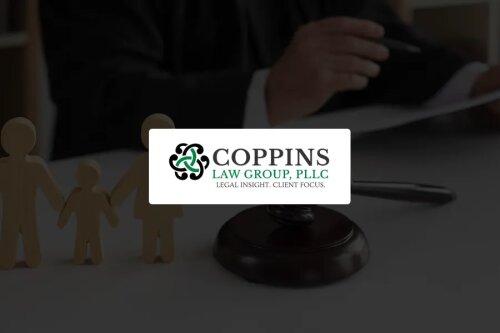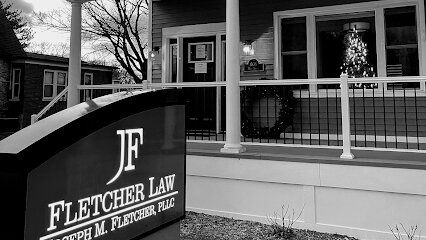Best Drug Crime Lawyers in New York City
Share your needs with us, get contacted by law firms.
Free. Takes 2 min.
List of the best lawyers in New York City, United States
1. About Drug Crime Law in New York City, United States
Drug crime law in New York City operates under New York State law, with prosecutors in each borough handling cases in local courts. The core framework is defined by the New York Penal Law, which covers possession, manufacturing, distribution, and trafficking of controlled substances. In NYC, cases typically proceed through the state court system, with arraignments, pretrial release decisions, and trials managed by the New York State Unified Court System.
Prosecutions can be for simple possession, possession with intent to distribute, conspiracy, or large-scale trafficking. Marijuana policy has evolved recently, with legalization for adults and a regulated market established in 2021 under the Marijuana Regulation and Taxation Act. Even after legalization for adults, selling cannabis outside licensed channels remains a crime, and other drugs are governed by strict penalties depending on amount and type.
In practice, drug cases involve a mix of arrest decisions by police, charging decisions by district attorneys, and potential diversion or treatment options at various stages. Defendants have rights at every step, including the right to counsel, the right to a speedy arraignment, and the right to challenge unlawful searches or seizures. Local courts in NYC handle arraignments and initial hearings, while more serious charges may proceed to higher courts.
“Marijuana legalization in New York State created a regulated framework while preserving penalties for illegal sales and other drug offenses.”Source: New York Cannabis Regulation and Taxation Act overview, official government site.
Key sources for official definitions and procedures include the New York Penal Law and the state court system. See Penal Law Article 220 for controlled substances and CPL procedures for criminal cases. Official sources provide the most current guidance on how charges are defined and how courts handle them.
Citations:
Source: Penal Law Article 220 - Controlled Substances (NY Senate) - https://www.nysenate.gov/legislation/laws/PEN/220
Source: New York Cannabis Regulation and Taxation Act overview - https://cannabis.ny.gov/
2. Why You May Need a Lawyer
Facing a drug charge in NYC can involve complex questions about evidence, procedures, and potential penalties. A lawyer who understands New York City courts can assess your case and build a strategy tailored to your facts and history. Below are concrete scenarios where legal counsel is essential.
- A first-time possession arrest in Manhattan followed by a misdemeanor charge and a potential diversion option. Counsel can explore treatment programs or alternative penalties that avoid a record.
- A stop-and-frisk confrontation in the Bronx resulting in a possession with intent to distribute charge, where the stop and search may raise Fourth Amendment issues. An attorney can challenge the evidence gathered.
- Drug trafficking charges in Brooklyn with allegations of large-scale distribution, where a plea deal or suppression motion could significantly alter exposure to prison time.
- An arrest for drug paraphernalia plus possession in Queens, where a lawyer can argue for dismissal or a reduced charge if the items relate to lawful medical or personal use and the conduct lacks intent to distribute.
- A cannabis related case under MRTA where a client is charged with illegal sale or possession above legal limits. Counsel can evaluate licensing status, intent, and proper regulatory defenses.
- A case involving juvenile defendants or family court concerns where treatment or rehabilitation options may affect outcomes beyond sentencing. A solicitor can guide guardians through appropriate processes.
3. Local Laws Overview
New York drug crime law is primarily codified in state statutes. The following specific laws and regulations are commonly involved in NYC drug cases. They shape how charges are defined, what defenses may be available, and what penalties apply.
- Penal Law Article 220 - Controlled Substances: This is the main body of statute governing possession, sale, distribution, and trafficking of controlled substances in New York. The penalties vary by substance type, amount, and prior offenses. Official text is available at the New York Senate site: Penal Law Article 220.
- Cannabis Regulation and Taxation Act (MRTA): This act legalized adult possession of cannabis under certain limits and established a regulated market. It also creates licensing and regulatory frameworks for sale and distribution. Official information is available at the New York Cannabis Regulation and Taxation Act resources: Cannabis Regulation and Taxation Act (MRTA).
- Criminal Procedure Law (CPL): Governs pretrial procedures, arraignment, bail, and related rights for defendants in NYC. Recent reforms have changed pretrial release rules in many cases. See general CPL guidance on the New York State Courts site: New York Courts - CPL information.
Recent trends include updates to marijuana policy and ongoing bail reform impacts on pretrial release. Official sources provide the current text and regulatory context for these changes, including the MRTA framework and the ongoing application of CPL procedures in NYC courts. When evaluating a drug case, a lawyer will review the specific charge language and how it aligns with the statute cited above.
4. Frequently Asked Questions
What happens after a drug arrest in New York City?
After an arrest, you typically face arraignment within 24 to 48 hours. A judge sets bail or releases you on recognizance, and you receive a next court date. A lawyer can appear on your behalf at initial appearances and begin building a defense plan.
How do I know if I need a drug crime lawyer in NYC?
Consider a lawyer if you face felony or misdemeanor drug charges, a potential diversion option, or the possibility of jail time. A local NYC defense attorney understands court practice and local prosecutors' tendencies.
What is the difference between possession and trafficking charges?
Possession charges cover holding drugs for personal use, while trafficking involves intent to distribute or sell. Penalties escalate with quantity, type of substance, and prior convictions.
How much does a NYC drug crime lawyer typically charge?
Prices vary by case complexity and experience. Expect initial consultations to range from free to a few hundred dollars, with ongoing representation often billed by hour or flat fee for certain services.
How long does a drug case take in NYC from arrest to resolution?
Simple cases may resolve in weeks, while complex cases can take months. Court calendars, plea negotiations, and pretrial motions influence the timeline significantly.
Do I qualify for a diversion program or drug court in NYC?
Divert options depend on charge type, jurisdiction, and your criminal history. A lawyer can determine eligibility for treatment programs or disposition alternatives.
What are the possible penalties for drug crimes in NYC?
Penalties range from fines and probation to prison, depending on charge level, substance, and prior record. The specific statute governs the range you face.
Can MRTA affect my marijuana case in NYC?
MRTA creates a regulated framework for cannabis and decriminalizes certain possession by adults. Prosecutors still pursue illegal sales, distribution without licenses, or violations of licensing rules.
How to prepare for arraignment in NYC drug cases?
Bring a list of charges, dates, and prior convictions. Do not discuss the case with others or police without your attorney present. Your lawyer should advise you on bail and next steps.
Is there a difference between federal and state drug charges in NYC?
Yes. State charges arise under Penal Law and are handled in NYC state courts; federal charges involve federal law and federal courts, often with harsher penalties for trafficking across state lines.
Do I need to talk to police if I am arrested for drugs?
No. Do not discuss the case without counsel present. A lawyer can guide you on what to say or not say to protect your rights and avoid self-incrimination.
5. Additional Resources
Use these official sources to understand the legal framework, procedures, and available services related to drug crimes in New York City.
- New York State Unified Court System - Official portal for criminal procedures, arraignments, and court calendars. Function: administers the court system and provides guidance on criminal proceedings. Link: nycourts.gov
- New York State Division of Criminal Justice Services (DCJS) - Provides statistics, policy information, and program oversight for criminal justice in New York. Function: collects data and supports criminal justice reform initiatives. Link: criminaljustice.ny.gov
- New York Cannabis Regulation and Taxation Act (MRTA) / Cannabis Regulation Board - Regulates marijuana use, licensing, and enforcement in New York. Function: oversees licensing, regulation, and enforcement related to cannabis products. Link: cannabis.ny.gov
- New York State Office of Addiction Services and Supports (OASAS) - Provides addiction treatment and support services. Function: oversees treatment programs and resources for substance use disorders. Link: oasas.ny.gov
6. Next Steps
- Clarify your case facts and gather documents such as police reports, charging papers, and any medical or substance use treatment records. Do this within 1-3 days of contact with counsel.
- Identify NYC defense lawyers who specialize in drug crimes and offer a free initial consultation. Schedule meetings within 1-2 weeks of arrest to compare strategies.
- Ask about experience with cases like yours, success rates, and potential pretrial options. Request a written estimate and a clear plan for next steps.
- Bring all questions to the consultation, including expected timelines, possible plea outcomes, and any diversion options. Have a checklist ready.
- Decide on a strategy with your attorney, whether it involves suppression motions, plea negotiations, or trial preparation. Set realistic milestones for the coming weeks.
- Retain counsel and sign a written engagement letter. Confirm the fee structure, payment schedule, and contact expectations with your attorney.
- Attend all court dates with your lawyer. Follow their guidance on appearances, bail options, and any treatment or counseling recommendations.
Lawzana helps you find the best lawyers and law firms in New York City through a curated and pre-screened list of qualified legal professionals. Our platform offers rankings and detailed profiles of attorneys and law firms, allowing you to compare based on practice areas, including Drug Crime, experience, and client feedback.
Each profile includes a description of the firm's areas of practice, client reviews, team members and partners, year of establishment, spoken languages, office locations, contact information, social media presence, and any published articles or resources. Most firms on our platform speak English and are experienced in both local and international legal matters.
Get a quote from top-rated law firms in New York City, United States — quickly, securely, and without unnecessary hassle.
Disclaimer:
The information provided on this page is for general informational purposes only and does not constitute legal advice. While we strive to ensure the accuracy and relevance of the content, legal information may change over time, and interpretations of the law can vary. You should always consult with a qualified legal professional for advice specific to your situation.
We disclaim all liability for actions taken or not taken based on the content of this page. If you believe any information is incorrect or outdated, please contact us, and we will review and update it where appropriate.

















